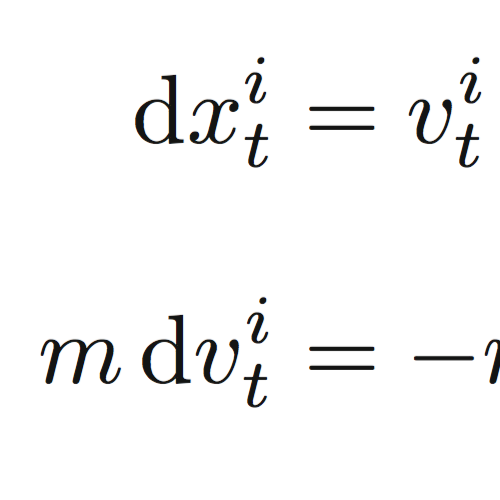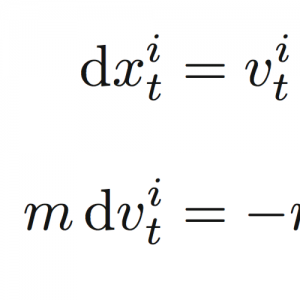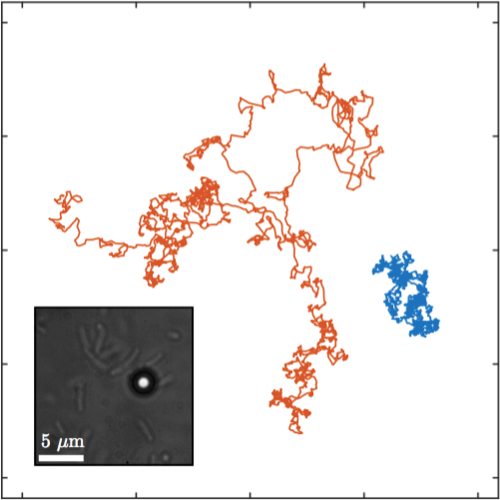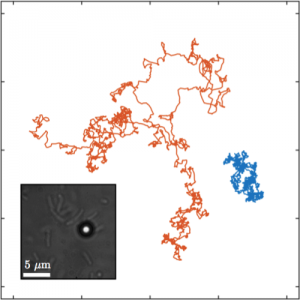Simon Nilsson defended his Master thesis in Complex Adaptive Systems at Chalmers University of Technology on 14 June 2017.
Thesis title: Collective Dynamics in a Complex Environment
Thesis advisor: Giovanni Volpe
Collective behaviour is a phenomenon that often occurs in systems of many interacting individuals. Common macroscopic examples of collective behaviour are flocks of birds, swarms of insects and crowds of people. On the microscopic scale, it is often observed in so-called active systems, constituted by self-propelled particles, also known as active particles. Motile bacteria or synthetic microswim- mers are among the most commonly studied active particles.
The potential applications of collective behaviour and understanding thereof encompass multiple disciplines, ranging from robotics and medicine to algorithms, like ant colony optimization. However, the apparent complexity makes under- standing an intimidating task. Despite this, simple models have proven successful in capturing the defining characteristics of such systems.
This thesis examines a well-known model of active matter and expands it to incorporate necessary components to explore the effects a complex environment has on this pre-existing model. Additionally, a new model is proposed and explored in purely active systems as well as in complex environments. Simulations show that a phase transition between a gaseous state and the formation of metastable clusters occurs as the level of orientational noise decreases. Furthermore, they show that this model describes the formation of metastable channels in a crowded environment of passive particles.



